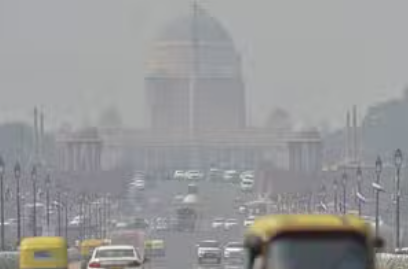Delhi-NCR Implements Stage I of Graded Response Action Plan
The air quality in Delhi and the surrounding areas (NCR) has worsened, leading to the activation of Stage I of the Graded Response Action Plan (GRAP) by the Centre’s air pollution control panel. The Air Quality Index (AQI) reached 234, which falls in the ‘poor’ category, signalling the need for immediate action to prevent further deterioration.
What is GRAP?
GRAP, or the Graded Response Action Plan, was introduced in India in 2017 as an emergency strategy to tackle air pollution in Delhi and its neighbouring regions. It consists of four stages, each triggered by different levels of air pollution. Each stage has specific actions that must be taken to reduce pollution and improve air quality.
Stage I is activated when the AQI falls between 201 and 300, which is considered ‘poor’. At this stage, the focus is on reducing dust and managing pollution through various steps.
Key Actions Under Stage I
Dust Control: Construction sites must follow stricter rules to control dust. Water sprinkling is increased to settle the dust in the air.
Waste Management: Authorities are stricter about managing waste, especially making sure that there is no open burning of trash.
Traffic Management: Efforts are made to reduce traffic-related pollution, including checking vehicles for pollution levels and improving traffic flow.
Industry Emission Control: Factories, power plants, and brick kilns are closely monitored to ensure they are following emission guidelines.
Restrictions on Diesel Generators: The use of diesel generators is limited because they produce a lot of pollution.
Banning Coal and Firewood: The use of coal and firewood in food establishments is prohibited to cut down on smoke emissions.
When Do These Measures Start?
These measures began at 8 am on Tuesday, as instructed by the Commission for Air Quality Management (CAQM). Authorities in Delhi, Uttar Pradesh, Haryana, and Rajasthan were directed to enforce these rules.
Future Stages of GRAP
If the air quality gets worse, more strict actions will be taken under the following stages:
Stage II: Activated when AQI is ‘Very Poor’ (301-400)
Stage III: Activated when AQI is ‘Severe’ (401-450)
Stage IV: Activated when AQI is ‘Severe Plus’ (above 450)
Why is GRAP Important?
GRAP is crucial for managing air quality, especially during the winter when pollution levels often rise. It helps protect public health by ensuring that steps are taken to reduce pollution before it gets too dangerous.
Month: Current Affairs - October, 2024
Category: States Current Affairs






